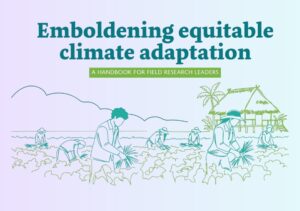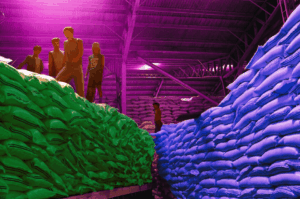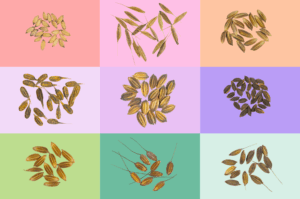The Indonesian Ministry of Agriculture has put in place several precautionary measures against the impact of La Nina that could lead to harvest failure for rice.
La Nina, a weather pattern associated with earlier rainy season and increasing rainfall, is predicted to occur in the fourth quarter of 2021.
The government has mapped regions that are vulnerable to flooding, prepared an early warning system, and monitors climate information from its Meteorology, Climatology and Geophysics Agency.
The strategy aims to ensure that rice crops remain productive under despite the impact of La Nina.
Read the story at Antara News
More on mitigating the impact of climate change on rice production in Indonesia:
From Warige to WeRise: better water management is coming to rainfed rice areas of Indonesia
WeRise, a weather-rice-nutrient integrated decision support system for rainfed rice areas, is an online ICT tool developed by the International Rice Research Institute (IRRI)-Japan Collaborative Research Project (IJCRP) with funding from the Ministry of Agriculture, Forestry and Fisheries of Japan. This system uses a seasonal-weather forecast that provides farmers with crucial weather information such as the start and end of the rainy season and rainfall distribution during the crop growing season. It also advises farmers when to sow and transplant, what variety is appropriate to use, and how to apply fertilizer efficiently.
Yield rises with WeRise
Unreliable weather can make or break rice farmers that rely on rainfall for water. Climate change makes it even harder to predict weather conditions, thus lowering the chances of recovering farmers’ investments in mitigating the impact of erratic rainfall patterns on their crops. To help solve this problem, a prototype weather rice-nutrient integrated decision support system (WeRise) came about. WeRise is a web application tool that integrates rice nutrients with weather data to provide farmers with weather and crop advisories.
Towards strategic crop management in rainfed rice areas
Land conversion, competition for water among agricultural and non-agricultural sectors, and the high maintenance cost of irrigation facilities underscore the need to enhance productivity in rainfed rice areas. WeRise was developed through the IRRI-Japan Collaborative Research Project (IJCRP) with funding from the Ministry of Agriculture, Forestry and Fisheries of Japan and the Japan International Research Center for Agricultural Sciences.
It aims to improve productivity in rainfed rice areas amidst climate change. Through science-based weather and crop advisories, WeRise can contribute to the realization of Sustainable development goal 2: Zero Hunger by transforming rainfed rice areas into a more sustainable production system by enabling efficient water and nutrient use to maximize the entire rice-growing season.
It can help rainfed rice farmers improve their climate change adaptation capacity through more strategic crop production decisions and consequently improve their livelihoods through a more stable and higher yield, and income. By empowering extension workers who are its target primary users, WeRise can also enhance extension and advisory services.










